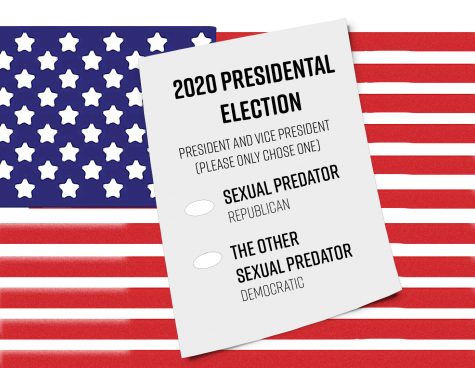Essential Employees: A Perspective
Throughout the early stages of this COVID-19 pandemic, SLU has taken many measures to ensure the safety of its students and employees. This has included switching to fully remote online classes on Zoom for the rest of the semester and sending non-essential employees home to quarantine with their families. However, those whose jobs are deemed essential to the university must continue going to work and risk exposure to COVID-19 by going out in public.
My dad is one of those essential workers. As a registered veterinary technician, he helps take care of the rodents used for research at Doisy Research Center. At the DRC, they test for a wide variety of vaccines so it is essential that the building continues to operate during this pandemic.
As I’m sure it is the same for many others, this is a scary time for me and my family. With my dad still going to work every day, there’s always the possibility in the back of our minds that he could catch COVID-19 and potentially spread it to others. Since the virus has such a high infection rate, and a lack of availability of tests, there is a risk of contracting it whenever someone goes out in public.
Unfortunately, there is not a whole lot that SLU or any other employer can do to prevent its essential employees from contracting the disease. The best they can hope to do is to sanitize surfaces, keep employees at least six feet apart from each other and to have employees wash their hands extensively. In this unprecedented situation, I believe SLU is doing the best it can when it comes to protecting the safety of its essential workers. However, this does not erase the fears of families like my own that someone they love will catch COVID-19 because of their essential worker status.
Throughout the COVID-19 pandemic, essential workers on the front lines are what’s holding this country together. Doctors, nurses, gig workers, retail workers, researchers and more are risking their health and safety to help fellow citizens during this time. A positive thing that I’ve seen come out of this crisis is an increase in appreciation for these workers that are keeping America afloat. In my opinion, these essential workers on the front lines of the COVID-19 pandemic are heroes for what they’re doing and should be treated as such.
Of course, this is an extremely scary time for essential workers. They are risking their health and safety by going out in public everyday to provide support for their families. Essential workers should be provided with hazard pay for putting themselves and their families at risk every day to keep the companies they work for and this country running. Since many of these essential workers are in positions with low wages, a minimum wage of $15 should be implemented so that these workers can support their families. Another good example of providing support for essential workers is SLU consolidating on campus housing so hospital workers can have a space to rest and recharge after long and stressful work shifts.
Another way essential workers can be supported is through government stimulus packages. Last week, Congress passed multiple stimulus bills to provide financial support for citizens and businesses during this crisis. This included a single payment of $1,200 for individuals who earn $75,000 or less in adjusted gross income. In my opinion, a single payment of $1,200 is simply not enough, especially for workers with COVID-19 symptoms who are quarantined and need to pay rent or medical bills. A monthly universal base income of at least $1,000 should be established so that essential and quarantined workers can still make payments and provide for their families. While it is nice to see an outpouring of support for essential workers on the frontlines of the COVID-19 pandemic, lip service alone will not provide workers with the assistance they need during these frightening times.
Your donation will support the student journalists of Saint Louis University. Your contribution will help us cover our annual website hosting costs.











Pat Thierry • Apr 2, 2020 at 3:15 pm
So proud of this young man! People need to follow instructions instead of thinking of themselves. Please for everyone’s safety stay quarantined. Thank you to all the people who are required to work please be safe.